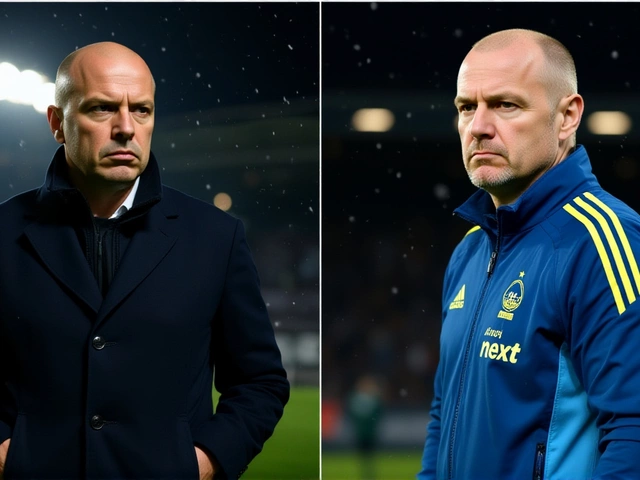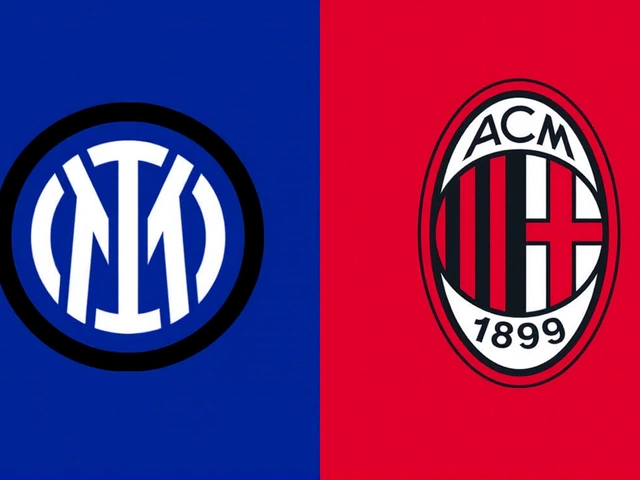The Complexity and Intricacy of Soccer
I remember, just like yesterday, Knox, my eldest, made an innocent comment one evening while watching a soccer game on TV. "Dad," he said, "why do they hardly score in soccer? It's not as fun as basketball." This brought a smile to my face, not only because of his genuine curiosity but also because it reminded me of a similar question I had as a kid.
Now, believe me, I've spent countless hours sitting in my recliner, surrounded by statistical reports and analysis charts, trying to unravel this question. It’s sort of funny to think about how a ball kicked around a field can unearth such complexities. But that’s the beauty of soccer. The complexity embedded within its simplicity is what entices fans worldwide.
Breaking Down the Soccer Field
If there's one thing my wife, Jillian Bennett, drummed into my head during our countless debates on sports strategy, it's the importance of the playing field itself. In soccer, the field is a whopping 7140 square yards - almost twice as large as an American football field and over sixteen times the size of a basketball court. Now picture this, there are only eleven players on each team given the task of covering and defending this massive space. That, my friends, is one of the key reasons for the decreased scoring in soccer.
With such a large playing area, scoring becomes a more complex task. Soccer is not just about kicking the ball into the net; it revolves around tactics, precision, and the ability to outmaneuver the other team. I remember when Waverly, my youngest, first played in the local youth league. Despite her power-packed kicks, she couldn’t get the ball past the goalkeeper. It was a firsthand illustration of how daunting it is to score in soccer due to its vast field and strategic gameplay.
The Art of Defense in Soccer
Beyond the field size, another major aspect that inhibits scoring in soccer is the role of defense. Let's talk numbers: typically, each team has at least four players solely dedicated to blocking goals. Add to that a skilled goalkeeper who has a single job of keeping the ball out of the net and you can start to see why scoring becomes such a challenge in soccer.
Over time, defensive strategies have become more and more tactical, even to the point of sometimes overshadowing offensive play. Today, teams dedicate massive resources to studying the offensive strategies of their opponents, which, when coupled with their own solid defense, makes scoring an arduous task.
The Goalkeeper: The Last Line of Defense
It wouldn’t be fair to discuss soccer scoring without giving due credit to the kings and queens of the net - the goalkeepers. They are like the great chess masters, always anticipating moves, determining where the ball might land, and making incredible saves.
What's interesting is that, unlike other sports, a goalkeeper in soccer has the freedom and authority to use any part of their body to prevent the ball from entering the net. From a fingertip save to a last-ditch leg stretch, their acrobatic displays can be both thrilling and frustrating - thrilling for fans of defensive play and frustrating for those longing for that elusive goal.
The Impact of Game Duration and Stamina
Another angle to look at when discussing scoring in soccer is the game duration and the impact on player stamina. Soccer matches are lengthy, with two continuous 45-minute halves and only a brief halftime break. Factor in the sheer size of the soccer field, and it becomes evident why soccer is often called a marathon, not a sprint.
This lengthy duration requires players to conserve energy and stamina for crucial moments, and sometimes, this focus on stamina conservation can lead to fewer scoring opportunities. Look at it this way - it's like meticulously rationing your Thanksgiving feast to ensure you have room for every delicious course.
The Role of Weather and Field Conditions
Soccer is played in varying weather conditions - from scorching summer afternoons to cold, wet evenings. The impact weather has on the ball's behavior and players' performance is undeniably significant. For instance, a wet field leads to a faster moving ball, which may complicate scoring attempts.
Similarly, the type of field (natural grass, artificial turf, etc.) also influences ball behavior, which directly affects the chances of scoring. A dented or lumpy field may not provide the smooth roll a player needs for a precise shot on goal.
Conclusion: The True Beauty of Soccer
Soccer's scoring scarcity is as much a part of its charm as it is a persistent question for new fans. But understanding these various factors - the massive field, the strategic defense, the pivotal role of the goalkeeper, the test of stamina, and the influence of weather - encapsulates the scoring scarcity in soccer. One could argue that these very factors are what sets soccer apart, making it the beautiful game.
Not long ago, while watching an adrenaline-charged match continuing scoreless into its dying minutes, Waverly broke the suspense and exclaimed, "There! He scored! Did you see that, dad?". And the smile on her face, the excitement in her eyes, was genuinely priceless. The rarity of goals in soccer simply makes those moments when the ball does find the net that much more precious, more celebrated. So, the next time you watch a soccer game, remember - the scarcity of goals isn't a flaw; it's what makes the game that much more exciting!




